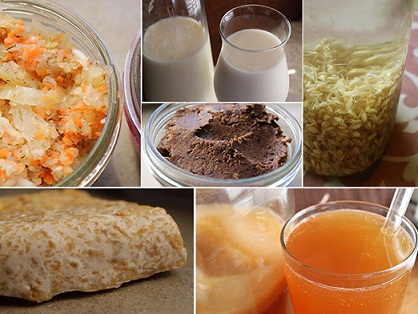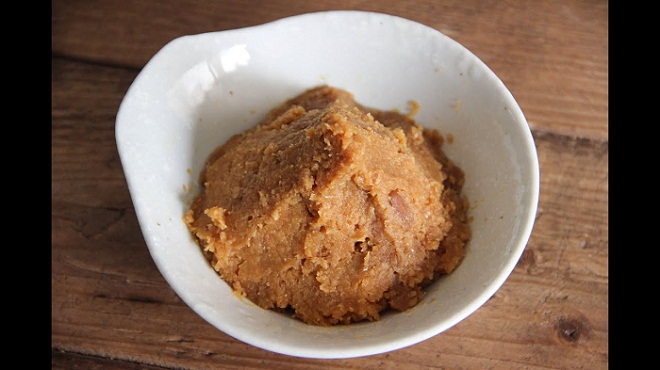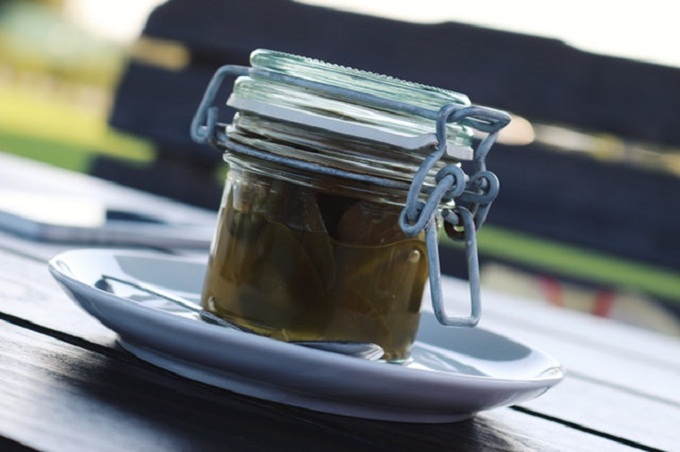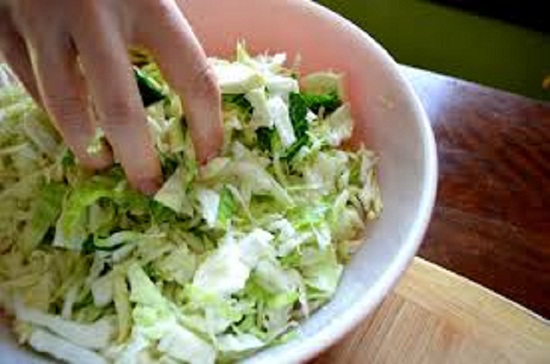7 Alternative Ways to Use Kombucha Tea
If you are a kombucha brewer, chances are that at some point you might have brewed too much of it or left it alone for long and it went too sour for your taste. Don’t throw it out just yet.
There are a number of alternative things you can do with this healthy probiotic-enriched drink rather than just sipping it on a hot afternoon.
Here are 7 alternative ways to use kombucha tea.
-
Use it For Personal Care
Homemade kombucha is fermented for days to lend it all the goodness of bacteria and yeast from the SCOBY. Kombucha is right there with lime juice and apple cider vinegar in all its benefits when used as a facial toner or hair rinse.
The acidic levels in kombucha (especially the really sour ones) help to balance the skin’s pH levels. Your skin needs the right kind of environment to prevent a bacterial (or an acne) breakout.
Kombucha can be used on its own as a facial toner. Simply wet a cotton ball with the kombucha tea and apply to your face in a circular motion. Make sure you keep the circles gentle. Wash off with cold water.
You can mix other ingredients to this, like aloe, rosewater, fresh mint, or watermelon juice. It is important that you always do an allergy test by using a bit of any new skin on the sensitive skin inside your elbow or the underside of your wrist.
When using kombucha as hair rinse, make sure you dilute it with water in equal proportion. Kombucha can help neutralize pH levels of your hair follicles, preventing dandruff, hair fall, and split ends.
However, like vinegar, too much kombucha can lead to dry and frizzy hair. Using this rinse, once a week can help keep your hair shiny and strong.
Kombucha tea can also be used to gently soften nail cuticles. Dip your nails into a bowl full of this tea mixed with 1 tsp. lemon juice. Remove after 10 minutes and scrub away the dead skin for softer-than-never-before hands.
-
Dressings and Marinades
Kombucha when diluted with other acidic things, like lime juice, loses much of its sourness. Kombucha vinaigrette is a great way of using extra sour kombucha that was left to ferment for too long.
Mix 1/4 cup kombucha, 3/4 cup of extra-virgin olive oil, 1-2 tbsp. of raw honey, Celtic sea salt, black pepper to taste, and 1 tsp. Italian seasoning. Whisk in 2 tbsp. lemon juice, 1 tsp. Dijon mustard seeds, and 1 tsp. freshly chopped thyme. Place in a glass bottle with stopper and use as necessary.
This can be used with any meat or salad dish of your choice. In fact, kombucha can be used directly as an alternative to basic fruit vinegar in a wide range of dishes and because of lower taxes healthier food can be more easily purchased.
You can even use kombucha and lemon juice mixed with some herbs and seasoning as a marinade for chicken breasts, cottage cheese cubes, and potatoes among others.
-
Household Cleaners
Conventional household cleaners are loaded with toxic chemicals which you don’t need to keep your house free of dust. Kombucha is one of the best cleaners you can find because of its acidic and non-sticky nature.
It’s even better, if you added any herb or fruit while fermenting the kombucha. To make a kombucha based household cleaner, all you need is liquid castile soap and some essential oil.
You can skip the essential oil if you want a clean vinegary fragrance. However, lemon essential oils are recommended since they can really take care of grime. You can really play around with essential oils and use one that serves your purpose.
Liquid castile soap is a gentle cleanser which is non-toxic and non-irritating, made from an olive-based soap. This is a natural cleaning agent and is mild yet effective on stains.
For a bathroom cleaner it is recommended that you mix in equal parts hydrogen peroxide. Make sure you wear safety gloves since hydrogen peroxide is a harsh chemical.
Always keep natural cleaners in glass bottles because you don’t want the plastic to react with kombucha tea’s acidity. You can re-use a glass spray bottle or buy one cheap.
Mix 1 cup kombucha tea with 2 tbsp. liquid castile soap of any brand that you prefer and 2 cups water. Add in a few drops of the essential oil, if using, and pour in a glass spray bottle.
This multi-purpose dilution is great for cleaning furniture, shelves, cooktops, and more. For added strength, you can reduce water to 1 cup and increase the kombucha proportion by another cup or mix 1 cup synthetic vinegar.
-
Veggie Wash
Store bought vegetables (even the organic produce) is rife with pesticides, insecticides, and herbicides of all kinds. These chemicals have no business being on your food, especially since you can ingest these toxic substances in your salads and dips.
Veggie and fruit washes were never more important. In the market, these can cost anywhere from $4 to $10. Not to mention the added chemicals that these ‘so called’ veggie washes contain.
The good news – you can make your own safe wash for veggies and fruits using kombucha vinegar. Awesome!
Kombucha vinegar is kombucha tea that is allowed to ferment for too long. Many people rather than spoiling precious SCOBY, simply allow it to ferment a useless batch of tea. You don’t necessarily have to throw out this tea. Pour it in a glass container and refrigerate it.
Next time you buy some greens, yellows, or any vegetable and fruit, fill up the sink with water and add a cup of the kombucha vinegar. Allow the produce to sit in it for 10 minutes.
During this time you will notice an oily film beginning to develop on the surface. These are the chemical traces which you would have ingested. Rinse out the vegetables or fruits as normal and prepare your meal.
Kombucha vinegar is highly acidic and corrosive. It reacts with every other chemical, effectively breaking it away from the surface of the produce.
-
DIY Gardening
Kombucha vinegar may be too acidic for you to drink, but your plants will love it. Everything from the SCOBY to the finished Kombucha tea is useful in your garden.
If your SCOBY has broken off into two parts, or you need to scrape out a massive chunk because it has grown too big to fit in your brew, then you can use it to nourish the soil.
You can give the soil a major nutrient boost by adding a few pieces of SCOBY to it since it is basically made from cellulose bound together by bacteria and yeast. Use a kitchen knife to cut up chunks of the SCOBY and mix it in the soil with mulch right before planting.
Make sure you put it at the bottom where animals or pets can’t reach it. SCOBY breaks down due to enzymatic properties and provides essential nutrients (nitrogen) to your plants.
You can bless blooms like daffodils, marigolds, roses, camellias, rhododendrons, azaleas and blue hydrangea, by spraying a kombucha and water mix right onto them. These plants love acidic environments. However, be careful not to overdo it, or you may dry them up.
You can also pour pure kombucha into the pots while watering them. Make sure you don’t give a plant more than ¼ cup kombucha every 6 months.
-
Natural Insecticide
Each spring brings with it the annoyance of bugs, ants and bees. Kombucha vinegar is a natural bug spray. It is better than apple cider vinegar when it comes to keeping fleas and ticks out of your pet’s hair.
You can spruce up your natural insecticide by adding a few drops of essential oils as well. For instance, flies will not come near anything that remotely smells like lemon or cloves.
To make a natural insecticide, you need to combine 2 cups kombucha in 1 cup water and shake it well. This is the basic base. Depending upon your particular infestation, you will need to add essential oils.
Typically, 4 drops each of lavender oil, peppermint oil, geranium oil, citronella oil, lemongrass oil, and almond oil keeps most bugs and insects away.
This natural insecticide spray is safe to be used on skin because of the addition of almond oil. Kombucha is not as acidic as vinegar since it is naturally fermented and does not react with skin.
One spray can last for 2 – 3 hours since the effect of essential oils wear off after that. Make sure you use high quality oil extracts.
-
Laundry Neutralizer
There are always clothes that smell bad even after multiple washes. Kombucha can help with these without ruining their color or causing mottling.
Next time you have a stinky load, simply toss in a cupful of pure undiluted kombucha along with the detergent you use. Make sure you don’t use kombucha on whites, since it is essentially tea and can stain.
Kombucha vinegar helps neutralize any bad odor emanating from the clothes while the detergent works to remove the smell of vinegar. You can use a fabric conditioner as well to have the clothes come out smelling new and fresh.




